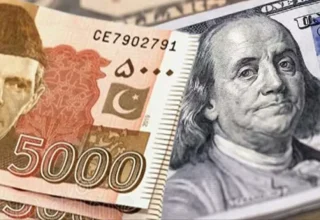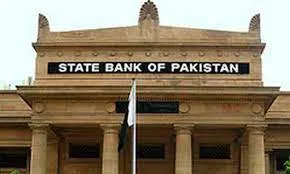
Pakistan has emerged as a major target for digital scammers, with citizens losing over $9.3 billion annually to various financial and online fraud schemes, according to a new international report.
The Global State of Scams Report 2025, released jointly by the Global Anti-Scam Alliance and Feedzai, reveals that these losses account for nearly 2.5 percent of Pakistan’s GDP, surpassing one-third of the IMF’s $7 billion loan program to the country.
The report classifies Pakistan among developing nations where financial scams have become a serious economic threat. Based on a survey of 46,000 adults across 42 countries, it found that seven out of ten people globally fell victim to at least one scam in the past year, while 13 percent encounter scam attempts daily.
Although Pakistan’s average per-victim loss of $139 is lower than many countries, the cumulative financial impact runs into billions of dollars.
Globally, the report estimated total scam-related losses at $442 billion in 2024, signaling devastating effects on financial systems worldwide. The most common scams include online shopping fraud (54%), investment schemes (48%), and fake prize offers (48%), with the majority of funds stolen via bank transfers (29%) and credit cards (18%).
Experts say Pakistan has become an increasingly easy target for cybercriminals, who exploit public inexperience and digital illiteracy through fake investment ads, phishing messages, and fraudulent online stores.
Rehan Masood, Senior Joint Director of Cyber Risk Management at the State Bank of Pakistan (SBP), said that distinguishing between fraud and scam is essential. “The misuse of digital banking and wallet accounts has been greatly reduced due to stronger cybersecurity frameworks introduced by SBP,” he explained.
He noted that no bank account can now be accessed from an unverified device, and even legitimate users must complete two-factor authentication and biometric verification when logging in from a new device.
“These measures have cut down account misuse and financial frauds by more than 90 percent, and we expect this to reach near zero in the future,” Masood added. However, he stressed that most scams still succeed because users voluntarily share PINs or verification codes with fraudsters posing as bank officials.
According to the report, the surge in digital transactions has led to a parallel rise in fraud attempts, especially through SMS, WhatsApp, and social media. Common tactics include fake parcel delivery calls, phishing messages claiming to be from bank representatives, and warnings about account closures that prompt victims to reveal personal details.
Khyyam Siddiqui, Head of Corporate Communication and Customer Care at JazzCash, emphasized that as Pakistan moves toward a cashless economy, safeguarding users from scams has become critical.
“Fraudsters are constantly evolving — from phishing calls to fake apps — so awareness and education are as important as technology,” Siddiqui said. He noted that JazzCash and other financial service providers, in partnership with the State Bank of Pakistan, have launched a nationwide awareness campaign to educate consumers about financial scams, their warning signs, and prevention strategies.
He added that such initiatives are vital to promoting digital financial literacy and building a secure and trustworthy digital finance ecosystem in Pakistan.













































